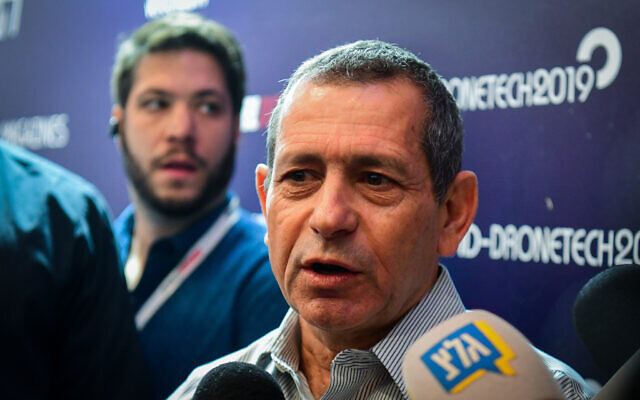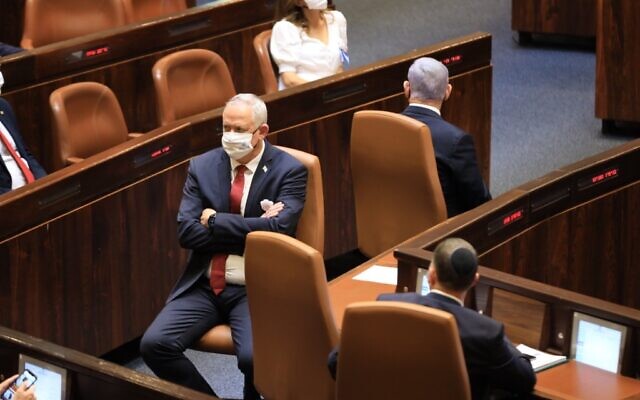Argaman will stay on at security agency past May 2021, as defense minister says he refuses to allow PM to appoint national security adviser as successor

Prime Minister Benjamin Netanyahu announced Friday he had extended Nadav Argaman’s tenure as the chief of the Shin Bet for an additional four months, with political infighting expected to prevent the appointment of a permanent head at the internal security agency for the foreseeable future.
Argaman’s tenure was set to end in May, but will now last until at least September.
The announcement came following a report in the Yediot Ahronoth newspaper that Netanyahu planned to appoint his national security adviser, Meir Ben-Shabbat, as the new director of the agency, a move Defense Minister Benny Gantz refused to agree to.
According to the report, Gantz has said that he won’t allow Netanyahu to appoint his close associates.

In response, Netanyahu’s office said that it was a “fictitious ultimatum” by the defense minister.
“Gantz is well aware that it is not possible to appoint a new Shin Bet head in a transitional government and this can only be done by the new government that will be formed,” the statement read. “We firmly reject the allegations against [Netanyahu] that come from self-centered considerations.”
The statement also defended Ben-Shabbat, saying that the National Security Council head “is an exceptional, dedicated public servant who does sacred work for Israel’s security.”
Ben-Shabbat is perceived as a close ally of Netanyahu, with some charging that he has become a political tool for the prime minister.

The speculation surrounding Ben-Shabbat’s possible appointment prompted some senior Shin Bet officials to warn they would quit if the nomination goes ahead.
“If Netanyahu appoints Meir Ben-Shabbat as the agency head, it would be for personal, not professional reasons,” a source told the Kan public broadcaster in December. “Ben-Shabbat is not suited to head the agency on professional grounds. If Ben-Shabbat is appointed to the head of the agency — we will quit.”
Ben-Shabbat was appointed the head of the NSC in 2017, a position in which he oversaw Israel’s normalization agreements with the UAE, Bahrain, Morocco and Sudan.
He is also heavily involved in the government’s pandemic response, as well as leading talks with Washington regarding the Iranian nuclear deal.
Israel had been left without many senior officials due to Netanyahu’s Likud party and Gantz’s Blue and White failing to reach agreements during their unity government.
Last week, the country was left without a justice minister, after Gantz’s three-month temporary term as acting justice minister — which cannot be extended — ended because Netanyahu refused to appoint a permanent minister. Netanyahu cannot himself be a minister due to his trial on corruption charges.
With the March election results continuing the political deadlock of past elections over the last two years, it seems that neither bloc that supports Netanyahu nor the bloc that opposes him will be able to form a government, which may continue the delays in appointing successors to senior officials in Israel.
As reported by The Times of Israel
